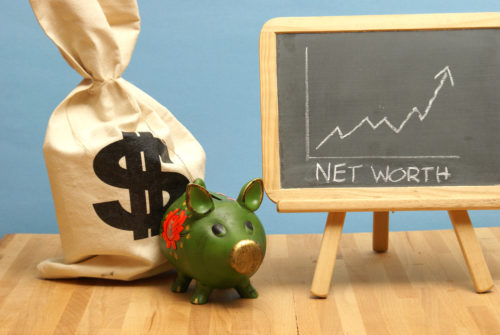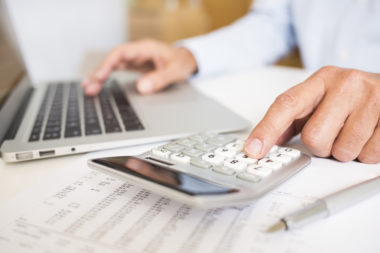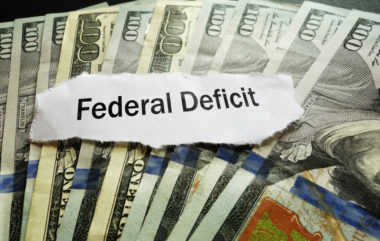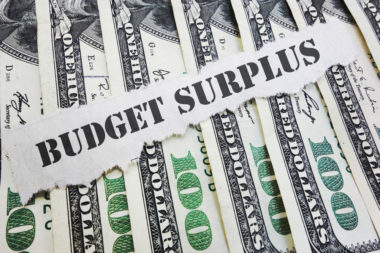Everyone has a net worth; net worth can be positive (where one has more assets than liabilities) or a negative(more liabilities than assets). It is essential to know what your net worth is before trying to gain financing for a larger purchase, such as a home. Personal and business net worth can fluctuate over time, making it essential to take the time to learn and understand what yours is.
Table of Contents
What Is Net Worth?
The sum of total assets minus the sum of total liabilities equals a person’s or a business’s net worth. Assets are all items owned of value, and liabilities are all debts owed. If you were to sell everything you own and turn it into cash, and then subtract what debts you owe, this would determine your net worth.
Assets
Assets are can be categorized in areas like savings, retirement, market investments, and other various accounts. Other investments, like property or a house, also count as assets.
Liabilities
Liabilities are all of the debts you have in your name. For example, if you purchase a car, the car itself is considered an asset; however, the debt owed against the vehicle (if you didn’t pay it off in full upon purchase) is a liability. The same would apply to home purchases.
Your net worth can fluctuate with market conditions and as you pay down debt. It is vital to have a general idea of what your net worth is. This number will be more critical during times when you might be seeking financing for a larger purchase, such as a home or business venue. If your net worth is negative, you may find it difficult to obtain this financing.
Personal Net Worth and Company Net Worth
The same personal net worth principles apply to a business’s net worth, but it can be more challenging to assess a business’s net worth. Banks use business net worth for business loans, and they also use it to determine a company’s financial health. If a company is struggling, this may cause investors to decide against funding or investing in it. If the net worth is positive with an excellent financial outlook, on the other hand, investors are more likely to fund the venture.
How to Calculate Net Worth
Determine your assets first by adding them together.
- All the funds in bank accounts: C.D.’s, checking and savings accounts (plus cash on hand);
- Retirement accounts, including any pensions, Keogh plans, stocks, mutual funds or bonds;
- Home, vacation home, and business assets;
- Automobiles, motorcycles, and boats;
- Appliances, jewelry, antiques, and collectibles.
Next, determine your liabilities by adding them together.
- Credit card debt;
- Mortgages (specifically the outstanding balance on the home loan);
- Taxes;
- Home equity loans or HELOCs;
- Auto, student and other loans;
Once you have the totals, use the formula to make your calculation. For example, let’s say you want to buy an expensive boat that will require financing. You have checking and savings accounts along with a retirement plan at work; you own a home with a mortgage and you have a car payment with one credit card bill. (The home value is the market value and what has been paid to the balance of the mortgage minus what you owe on the mortgage).
You would follow this formula:
Assets – Liabilities = Your net worth.
Assets:
Checking – $1,000
Savings – $7,000
Retirement plan – $35,000
Home – $50,000
Liabilities:
Mortgage Balance – $100,000
Auto Loan Balance – $20,000
Credit Card – $4,000
$93,000 in assets – $124,000 in liabilities = -$31,000 (negative net worth).
How to Improve Your Net Worth
If you have a negative net worth, there are ways to improve your financial situation. Doing so will take time, so it is important to budget, create a plan, and stick to it.
Monitor Your Spending
The best place to begin is by looking at your checking account statement. There, you can see how much you are depositing versus spending. Closely examine what items you are spending on. Frivolous expenditures like going to the movies can be cut out or reduced altogether, while shopping and fuel expenses can be minimized by not making unnecessary trips to the grocery store.
Shop Smarter
Look at your grocery receipts. How much are you spending on food? Are there any items you may not need or could cut back on? It may seem trivial; however, little things add up. Even spending a few bucks at the convenience store or a trip to Starbucks can add up. Could you go without a mocha latte every day? One small mocha latte could cost around $2.95. If you were getting one five days a week on the way to work, that is about $700 a year, and that doesn’t include taxes.
Pay Off Debts Faster
Another way to pay down debts is to pay more than the monthly payment on your credit cards. Even small amounts will add up over time. You would need to reduce or eliminate using your cards while you are paying them down.
Negotiate Interest Rates on Debts
Do you need that high car payment? Have you checked your interest rate? Many buyers enter the dealership with a price in mind, but they may forget to consider the interest rate. If you have a decent credit score you may qualify for a lower interest rate on your payment. If you feel your current interest rate is too high you may qualify for refinancing and could get a better interest rate and payment plan.
If you are a homeowner and have been in your home for a few years with favorable market conditions, you may have enough equity in your home for a cash-out refinance loan. You can use these funds to pay off other debts such as credit cards and other unsecured loans.
Image Source: https://depositphotos.com/





